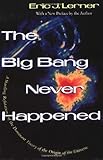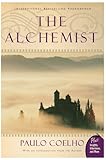A Universe of Freedom
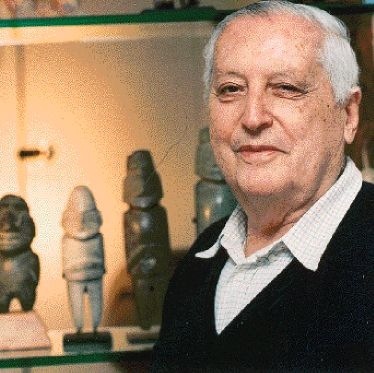
“The more we know about our universe, the more difficult it becomes to believe in determinism.”
–Ilya Prigogine (Russian-born Belgian Physical Chemist, and, in 1977, Winner of the Nobel Prize in Chemistry, 1917-2003)
The World’s Greatest Lie!
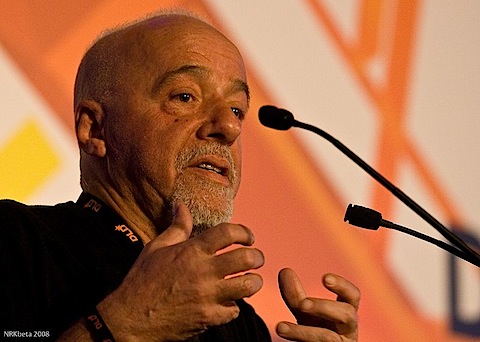
“What’s the world’s greatest lie?…. It’s this: that at a certain point in our lives, we lose control of what’s happening to us, and our lives become controlled by fate. That’s the world’s greatest lie.”
–Paulo Coelho (Brazilian Writer, 1947-)
Habits Have Their Place, But…
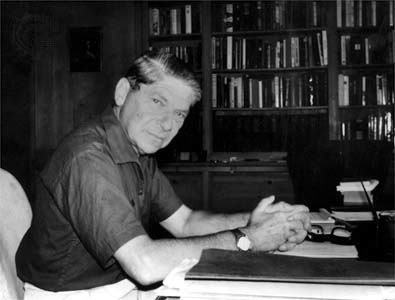
“Habit is the denial of creativity and the negation of freedom; a self-imposed straitjacket of which the wearer is unaware.”
–Arthur Koestler (Hungarian-born British Writer and Philosopher, 1905-1983)
Becoming A Responsible Agent

“We can choose to develop awareness,…. which allows us to be responsible agents instead of helpless victims.”
–Jetsunma Tenzin Palmo (English-born Buddhist Nun, 1944-)
Fatalism and Ethics
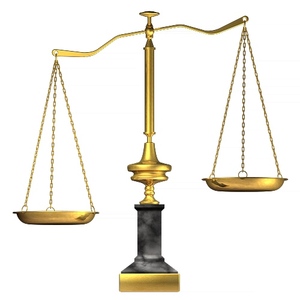
We are constantly inundated by reports of the consequences of bad decision-making, and that leads us to consider two issues: genetic determinism – the notion that our behavior is totally the result of our genes – and whether or not we have free will. This is a hugely important issue, not only for each of us personally, but also for our views about morality and the justice system. And what happens when everyone becomes convinced that they have no free will and that “they’re genes made them do it?”
We know from our own experience as well as empirical studies that changing a person’s sense of responsibility can change his or her behavior.
Interestingly, the link between fatalistic beliefs and unethical behavior seems never to been examined scientifically.
In two recent experiments published in the journal Psychological Science psychologists Kathleen Vohs of the University of Minnesota and Jonathan Schooler of the University of British Columbia decided to see if otherwise honest people would cheat and lie if their beliefs in free will were manipulated.
They gave college students a mathematics exam. The math problems appeared on a computer screen, and the subjects were told that a computer glitch would cause the answers to appear on the screen as well. They were told that to prevent the answers from appearing, the students had to hit the space bar as soon as the problems appeared.
This was a ruse: the researchers were observing to see if the participants surreptitiously used the answers instead of solving the problems honestly on their own. Before the test they used a well-established method to prime the subjects’ beliefs regarding free will. Some of the students were told that science has disproven the notion of free will and that the illusion of free will was an artifact of brain activity. The other group where told nothing about free will.
The results were clear: those with weaker convictions about their power to control their own destiny were more likely to cheat when given the opportunity compared with those whose beliefs about controlling their own lives were left untouched.
The researchers then went a step further to see if they could get people to cheat with unmistakable intention and effort. The experimenters set up a different deception. This time they had the subjects take a very difficult cognitive test. Then they were asked to solve a series of problems without supervision and to score themselves. They also “rewarded” themselves $1 for each correct answer. To collect the cash they had to walk across the room and help themselves to money in a manila envelope.
The psychologists had previously primed the participants to have their beliefs in free will bolstered or reduced by having them read statements supporting a deterministic view of human behavior.
This study shows that those with a stronger belief in their own free will were less likely to steal money than were those with a weakened belief.
The results of this study indicate a significant value in believing that free will exists. The work also raises some significant questions about personal beliefs and personal behavior.
“The flame of Christian ethics is still our highest guide.”
–Sir Winston Churchill (English Statesman, British Prime Minister, 1940-1945 and 1951-1955, and, in 1953, Winner of the Nobel Prize in Literature, 1874-1965)
“You’re born with intelligence, but not with ethics.”
–Masad Ayoob (American Firearms and Self-defense Instructor and the Director of the Lethal Force Institute in Concord, New Hampshire, 1948-)
“Fatalism, whose solving word in all crises of behavior is “All striving is vain,” will never reign supreme, for the impulse to take life strivingly is indestructible in the race. Moral creeds which speak to that impulse will be widely successful in spite of inconsistency, vagueness, and shadowy determination of expectancy. Man needs a rule for his will, and will invent one if one be not given him.”
–William James (American Psychologist and Philosopher, 1842-1910)
“To live lightheartedly but not recklessly; to be gay without being boisterous; to be courageous without being bold; to show trust and cheerful resignation without fatalism -this is the art of living.”
Jean de La Fontaine
“Custom has furnished the only basis which ethics have ever had.”
–Joseph Wood Krutch (American Naturalist, Writer and Critic, 1893-1970)
Free Thinker's Day
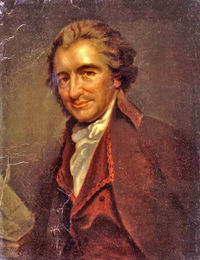
Today is Freethinker’s Day, ostensibly because January 29th is the birthday of Thomas Paine.
Born in Thetford in Norfolk in 1737, he emigrated from England to Philadelphia in 1774 after he met Benjamin Franklin in London, who advised him to seek his fortune in the Americas, and gave him letters of introduction. It was two years later that he published Common Sense, a popular pamphlet that argued for complete American independence from Britain and was an important influence on the American Revolution. This, probably more than any other single publication, paved the way for the Declaration of Independence.
Later that same year in his pamphlet The American Crisis he wrote his famous line, “These are the times that try men’s souls.”
After the revolution was won, Paine returned to England in 1787, and in 1791 he published The Rights of Man, which opposed the idea of monarchy and defended the French Revolution. The book immediately created a sensation, with at least eight editions being published in 1791, and the work was quickly reprinted in the United States where it was widely distributed by the Jeffersonian societies.
The Rights of Man began as a defense of the French Revolution but it evolved into an analysis of the basic reasons for discontent in European society and suggested that republicanism was a remedy for the evils of arbitrary government, poverty, illiteracy, unemployment and war.
He was always a free thinker, and I’ve recently re-read the Rights of Man and been impressed by his writing, even if I don’t agree with all of his conclusions.
Free thinking is what lead to the creation of Integrated Medicine and the discovery that some of the Laws of Life have been evolving and changing over the last few centuries. These discoveries were all the fruits of thinking – and living – “outside the box.”
Here are a few of Thomas Paine’s quotable quotes:
“A bad cause will never be supported by bad means and bad men.”
“A constitution is not a thing in name only, but in fact. It has not an ideal but a real existence, and wherever it cannot be produced in a visible form, there is none. A constitution is a thing antecedent to a government, and a government is only the creature of a constitution. The constitution of a country is not the act of its government, but of a people constituting a government. It is the body of elements to which you refer, and quote article by article, and contains the principles on which the government shall be established–the form in which it shall be organized–the powers it shall have–the mode of elections–the duration of Congress–and, in fine, everything that relates to the complete organization of a civil government, and the principles on which it shall act, and by which it shall be bound. A constitution is to a government, therefore, what the laws made by that government are to a court of judicature. The court of judicature does not make laws, neither can it alter them; it only acts in conformity to the laws made; and the government is in like manner governed by the constitution.”
“A long habit of not thinking a thing wrong gives it a superficial appearance of being right.”
“A republic properly understood is a sovereignty of justice, in contradistinction to a sovereignty of will.”
“A thing moderately good is not so good as it ought to be. Moderation in temper is always a virtue; but moderation in principle is always a vice.”
“Accustom a people to believe that priests, or any other class of men who can forgive sins, and you will have sins in abundance.”
“Action and care will in time wear down the strongest frame, but guilt and melancholy are poisons of quick dispatch.”
“All the religions known in the world are founded, so far as they relate to man or the unity of man, as being all of one degree. Whether in heaven or in hell, or in whatever state man may be supposed to exist hereafter, the good and the bad are the only distinctions.”
“Belief in a cruel God makes a cruel man”
“Character is much easier kept than recovered.”
“Civilization, or that which is so called, has operated two ways to make one part of society more affluent and the other part more wretched than would have been the lot of either in a natural state.”
“Compassion, the fairest associate of the heart.”
“He is not affected by the reality of distress touching his heart, but by the showy resemblance of it striking his imagination. He pities the plumage, but forgets the dying bird.”
“He that would make his own liberty secure must guard even his enemy from oppression; for if he violates this duty he establishes a precedent that will reach to himself.”
“I believe that a man may write himself out of reputation when nobody else can do it.”
“I love the man that can smile in trouble, that can gather strength from distress, and row brave by reflection. ‘Tis the business of little minds to shrink; but he whose heart is firm, and whose conscience approves his conduct, will pursue his principles unto death.”
“It is error only, and not truth, that shrinks from inquiry.”
“It is from our enemies that we often gain excellent maxims, and are frequently surprised into reason by their mistakes.”
“It is necessary to the happiness of a man that he be mentally faithful to himself.”
“Man must go back to nature for information.”
“Moderation in temper is always a virtue; but moderation in principle is always a vice.”
“Most other passions have their periods of fatigue and rest, their suffering and their cure; but obstinacy has no resource, and the first wound is mortal.”
“My country is the world, and my religion to do good.”
“My mind is my own church.”
“Mystery is the antagonist of truth. It is a fog of human invention, that obscures truth, and represents it in distortion.”
“Reputation is what men and women think of us; character is what God and angels know of us.”
“Tears may soothe the wounds they cannot heal.”
“The harder the conflict, the more glorious the triumph. What we obtain too cheap, we esteem too lightly; it is dearness only that gives everything its value. I love the man that can smile in trouble that can gather strength from distress and grow brave by reflection. ‘Tis the business of little minds to shrink; but he whose heart is firm, and whose conscience approves his conduct, will pursue his principles unto death.”
“The nearer any disease approaches to a crisis, the nearer it is to a cure. Danger and deliverance make their advances together; and it is only in the last push that one or the other takes the lead.”
“The real man smiles in trouble, gathers strength from distress, and grows brave by reflection.”
“The sublime and ridiculous are often so nearly related that it is difficult to class them separately. One step below the sublime makes the ridiculous and one step above the ridiculous makes the sublime again.”
“The world is my country, all mankind are my brethren, and to do good is my religion.”
“There is a natural firmness in some minds, which cannot be unlocked by trifles, but which, when unlocked, discovers a cabinet of fortitude.”
“These are the times that try men’s souls.”
“Those who expect to reap the blessings of freedom, must, like men, undergo the fatigues of supporting it.”
“Though the flame of liberty may sometimes cease to shine, the coal can never expire.”
“Time makes more converts than reason.”
“’Tis the business of little minds to shrink; but he whose heart is firm, and whose conscience approves his conduct, will pursue his principles unto death.”
“Tyranny, like hell, is not easily conquered; yet we have this consolation with us, that the harder the conflict, the more glorious the triumph. What we obtain too cheap, we esteem too lightly: it is dearness only that gives every thing its value.”
“We feel something like respect for consistency even in error. We lament the virtue that is debauched into a vice; but the vice that affects a virtue becomes the more detestable.”
“We fight not to enslave, but to set a country free, and to make room upon the earth for honest men to live in.”
“We have it in our power to begin the world over again.”
“What we obtain too cheap we esteem too little; it is dearness only that gives everything its value.”
“When men yield up the privilege of thinking, the last shadow of liberty quits the horizon.”
“When the tongue or the pen is let loose in a frenzy of passion, it is the man, and not the subject, that becomes exhausted.”
“When we are planning for posterity, we ought to remember that virtue is not hereditary.”
Miracles and Expectations
“I believe there is no source of deception in the investigation of nature which can compare with a fixed belief that certain kinds of phenomena are impossible.”
–William James (American Psychologist and Philosopher, 1842-1910)
There was a very interesting article published in the British Medical Journal in 1983. My old friend Peter Fenwick wrote a very interesting paper on prayer that cited this story.
Christian missionaries had gone to Ethiopia, but were required to leave by the Government in power at the time. They left behind some Gospels. When they returned some years later, they found not only a flourishing church, but also a community of believers amongst whom miracles like those mentioned in the New Testament happened every day. There had been no missionaries to teach them that such things were not supposed to be taken literally. They created miracles because they had never been told that they could not. There were no scientifically trained missionaries to tell them that miracles only occurred in the first century of the Church’s existence, or in special circumstances if a highly trained priest is present.
This sort of case – and there are many others – gets straight to the heart of the role of belief and expectation in our lives. Is there one fixed external reality, and we are no more than puppets dancing on cosmic strings? I’ve heard many people say that. Just recently the Editor of Psychology Today said that he felt that everything in human behavior could be reduced to genes, learning and reflexes. I must respectfully disagree. Free will is not an illusion, and our hopes and expectations have a massive impact on the structure of our lives and our reactions to the events that will come our way.
How many things are you failing to achieve because of fears or negative expectations?
Some people might describe the Ethiopians as unsophisticated. I would not: these good people can teach us something that many of us have forgotten.
Clean up and focus your expectations, ensure the purity of your intentions and see what happens in your life.
I’ve put just a few quotations below. I selected them for this reason: as you look at them, see how many are directly relevant to your life.
Do any of them give you ideas about managing your own life? If not, you may like to have a look at/listen to Healing, Meaning and Purpose or the articles and podcasts that I shall be posting this month.
“Men are probably nearer the central truth in their superstitions than in their science.”
–Henry David Thoreau (American Essayist and Philosopher, 1817-1862)
“Perhaps the only limits to the human mind are those we believe in.”
–Willis Harman (American Scientist and Late President of the Institute of Noetic Sciences; 1920-1997)
“It is one of the most common of mistakes to consider that the limit of our power of perception is also the limit of all there is to perceive.”
C.W. Leadbeater (English Clergyman and Theosophical Writer, 1854-1934)
“The only way of discovering the limits of the possible is to venture a little way past them into the impossible.”
–Arthur C. Clarke (English-born Writer, 1917-)
“Only if you reach the boundary will the boundary recede before you. And if you don’t, if you confine your efforts, the boundary will shrink to accommodate itself to your efforts. And you can only expand your capacities by working to the very limit.”
–Hugh Nibley (American Scholar in the Church of Jesus Christ of Latter-day Saints, 1910-2005)
“Know from whence you came. If you know whence you
came, there are absolutely no limitations to where you can go.”
–James Baldwin (African-American Writer, 1924-1987)
“Give yourself the freedom to explore the possibility of life without limits. Goals are dreams with deadlines, a means to an end but not the ultimate purpose of life.”
–Glynis Nunn (Australian Heptathlete, 1960-)
“Imposing limitations on yourself is cowardly because it protects you from having to try, and perhaps failing.”
–Vladimir Zworykin (Russian-born American Physicist and, in 1923, the inventor of the “Iconoscope:” the first television camera, 1889-1982)
“Divine wisdom is inexhaustible; the limitation is only in the receptive faculty of the form.”
–Henricus Madathanus (German Philosopher, Alchemist and Co-Founder of the Fraternity Rosae Crucis, 1575-1639)

